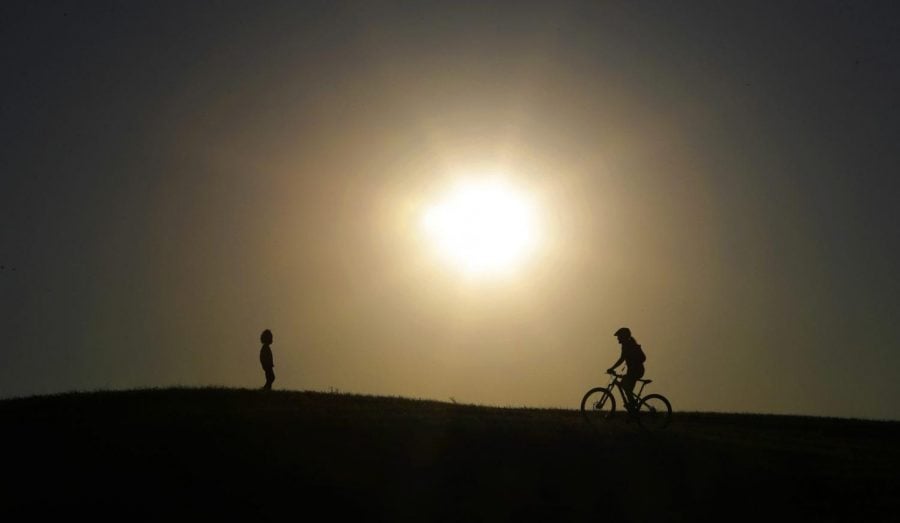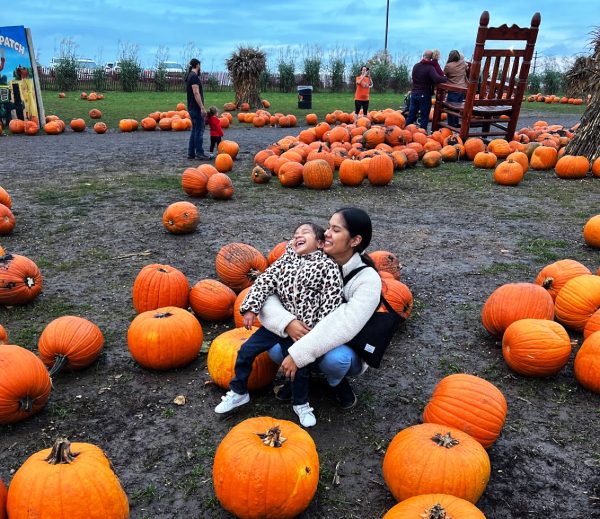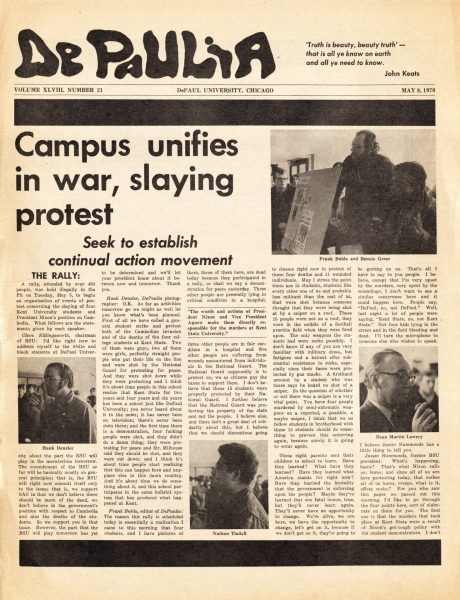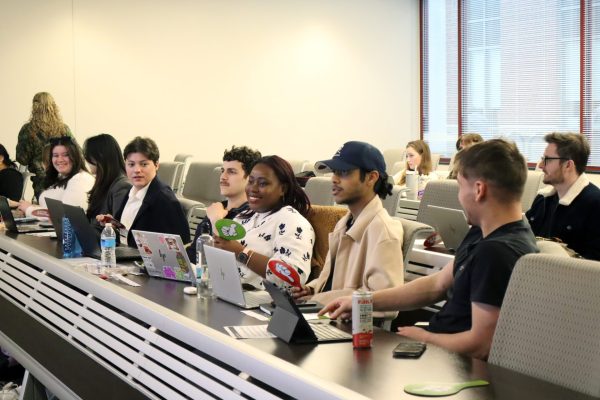DePaul community finds ‘good within the bad’ of COVID-19 pandemic
A cyclist tops a hill in a park at sunset in San Antonio, Monday, April 13, 2020. San Antonio is under stay-at-home orders due to the coronavirus pandemic, but parks have remained open for exercise and physical activity as long as social distancing is observed.
Claire Nelson goes on daily walks with her family. Before quarantine, they only saw each other at dinnertime and on the weekends. Now, they’re taking the time to catch up.
As around 95 percent of U.S. residents are under stay-at-home orders, “usual” routines have gone out the door. This has mainly taken on a negative connotation because many resources typically relied on are no longer available. The term “social distancing” has created an alarm, as there is now limited physical connection to friends, family, colleagues and others and institutions seen as a place of solace have been closed down.
However, in adjusting to this “new normal,” lifestyles have changed, which has caused a shift in mentality.
“While we continue to offer services we have in the past, we have also expanded our programming to address changing needs and environments,” said Katie Bellamy, a substance misuse prevention specialist from DePaul’sOffice of Health Promotion and Wellness (HPW).
For example, the office has introduced a “Wellness Workshop” which is held every Wednesday from 12-12:30 p.m. CST on Zoom. These workshops focus on a different topic surrounding wellness each week, and are open to DePaul students, staff and faculty. There is also a blog recapping all the workshops for those who couldn’t attend.
Bellamy said HPW has received concerns regarding virtual learning and staying at home. These have mainly revolved around the difficulty of finding accountability in attending online lectures and completing assignments, sadness and grief related to lack of social connection, financial stress and anxiety around the unknown, among other things.
Yet Bellamy also said that acknowledging these fears is the first step in coping. She explained how this type of anxiety can be felt both individually and collectively, and that it’s fine to search for new ways of dealing with the current circumstances.
However, despite the individual and collective feeling of anguish, the same can be said for hope.
“It can be helpful to take a holistic approach,” Belamy said. “We can feel uncertain, scared and sad, and feel hopeful, grateful and grounded all at the same time.”
Nelson is one of the many students adjusting to online learning. She is a part of DePaul’s incoming freshman class and is still finishing high school in Michigan. When her school transitioned to virtual classes, she said it felt “rushed instead of perfected.”
Even though her classroom dynamic shifted, she’s learning what good can come from her surroundings. Nelson said she is now more informed about the economy, politics and public health, which she wouldn’t have expected to know before. It has also taught her to appreciate the world around her.
“Value everyday, every person and every experience,” she said.
Like Nelson, Daryl Koehn is still trying to acclimate to new routines.
Koehn — who is the Wicklander chair in professional ethics at DePaul — has found routine in preparing for her classes and by taking Italian lessons, too. She said that the home-cooked meals she and her husband are preparing are staples in helping to define the days.
“Routine and ritual are our friends at a time of crisis,” Koehn said.
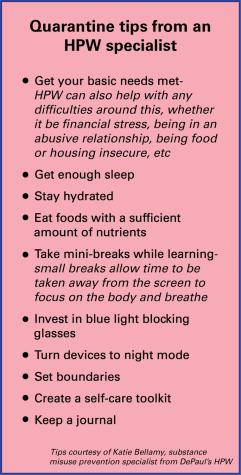
As she has noticed the days starting to gel together, she has found different ways to maintain coherency everyday. She said she has turned to the philosopher Plato who emphasizes how we should avoid wronging ourselves and others, and instead look to the side of kindness and generosity.
“We don’t know what kind of difficult circumstances our students, peers and fellow citizens are struggling with now,” Koehn said. “We should seek to be as helpful as possible, while refraining from making possibly unwarranted assumptions about what others can or cannot do,” said Koehn.
She also sees this as an opportunity for workplaces to adopt new principles.
“Everything is fluid right now, so it may be a good time to right some old wrongs,” Koehn said.
She added that this could be a time for workers to demand fairer wages and promote activism for breaking the pay disparity between employers and employees.
In working through these unprecedented times. Bellamy said to try to find the “gray area” to find a balance. Seeing the positive as well as the negative elements in life will help find what’s needed and to create a path forward. Eradicating the term “social distancing” and replacing it with terms like “physical distancing” and “distant socializing” might be able to ease the state of mind and help connect with others.
“Something that has been helpful for me is reflecting on what my role is through this time,” said Bellamy.


